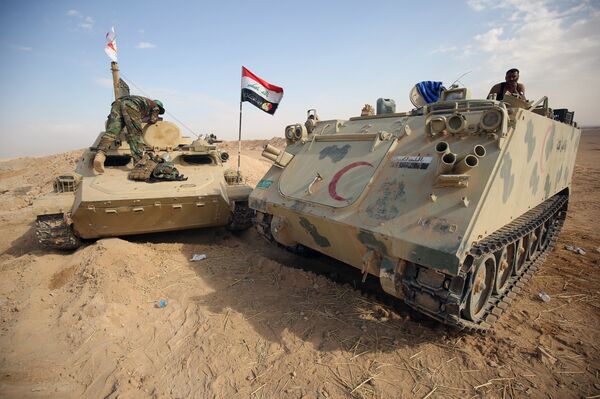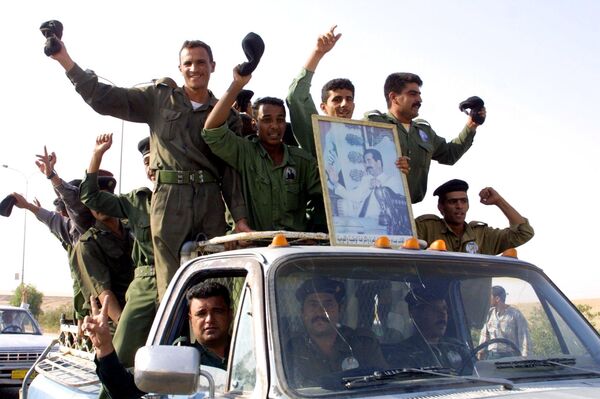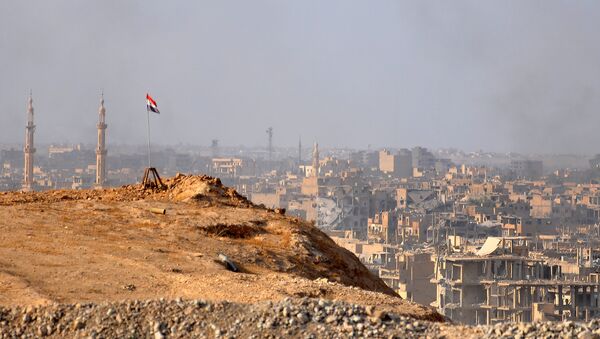On Friday, the Syrian army announced it had retaken Deir ez-Zor from the Daesh terrorist group, depriving it of its last urban stronghold in Syria. Beirut-based scholar and journalist Dr. Lorenzo Trombetta, an independent consultant for The United Nations Office for the Coordination of Humanitarian Affairs, told Radio Sputnik that the group will persist in "rural" and "deprived" areas unless there is a sustained effort to support local communities.
What is the significance of this particular victory for Syria?
We should remind ourselves that Deir ez-Zor is not only the last urban stronghold of the Islamic State (Daesh) organization in Syria but is also the last urban stronghold of the entire Islamic State organization in the Middle East. So, after the fall of Raqqa, Mosul and now Deir ez-Zor, we can say that the Islamic State organization does not have any more presence in an urban context while the Islamic State perhaps would remain present in the rural, suburban peripherical areas.

Lorenzo Trombetta: The most recent news was saying that Iraqi forces and the pro-Iranian Shiite militia were entering Al Qaim, the last city between Syria and Iraq.
Seen from a military point of view, we are very close to a military defeat of the Islamic State organization in Syria and Iraq, but the Islamic State is not based only on its military power, its physical presence or geography. It's also a very powerful ideological and political actor that will continue to have its consensus among populations, especially the deprived population of the Euphrates River between Syria and Iraq.
Now that Daesh has largely been driven from urban areas, has its ideological threat really abated?
Lorenzo Trombetta: It's important to remind [ourselves] of the linkage between al-Qaeda and the Islamic State organization. After 2003 and the fall of [Saddam] Hussein in Iraq, there emerged a new kind of jihadist, al-Qaedist insurgency. We saw that the US attempt to destroy and defeat this insurgency, these terrorist actions, didn't really succeed.

It's a very difficult and broad question, but what does postwar Syria now need to do to recover from years of fighting? What do you foresee is going to happen in the coming weeks and months?
Lorenzo Trombetta: As analysts we are always looking at the military and political facts. Sometimes we are looking at the social and economic developments of a situation. Nowadays, at least for the next few weeks, we will witness two, let's say peace conferences in Sochi, Russia and in Geneva at the end of November. Perhaps we will see some positive results from a military and political point of view but in the long term the main question that the international community and regional actors should address is trying to support local communities on a social-economic level in order to re-establish a link among Syrian people, re-establish trust among local governments, institutions and the social community scattered on the ground.
Not only to let the millions of Syrians who escaped abroad to go back to their country, but also to find another social contract between communities and local authorities. So, I would like to stress that the international layers of the analysis are not sufficient enough to understand the next challenge for, let's say, finding a solution to the Syrian conflict.

